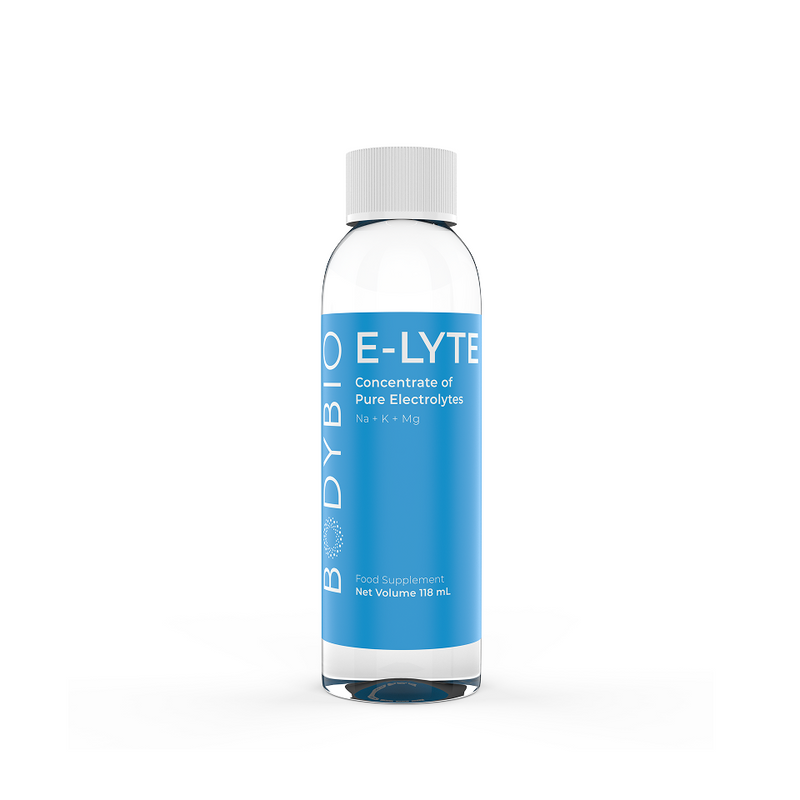Caffeine Crash: What It is, How to Recover, & Prevention Tips
Key Takeaways:
Key Points:
- A caffeine crash happens when the stimulant effects of caffeine wear off, leading to sudden fatigue, mood drops, and difficulty concentrating.
- Caffeine stays in your system for up to 12 hours, but most people feel the effects wear off within 4-6 hours, leading to the crash.
- Coffee can make you feel sleepy due to the rush of adenosine once the caffeine wears off, as well as dehydration or blood sugar drops.
For many people, caffeine is a staple of their daily routine, fueling their mornings or providing a much-needed boost during the afternoon slump. However, there’s a lesser-discussed downside to that energy rush — the caffeine crash. If you've ever found yourself feeling more exhausted than you were before experiencing your caffeine ‘high’, you're likely familiar with this phenomenon.
Understanding how caffeine interacts with the body, how long it stays in your system, and what steps to take to mitigate its side effects can make all the difference in harnessing caffeine's benefits without suffering from the aftermath.
Table of Contents:
- What is a Caffeine Crash?
- Caffeine Crash Symptoms
- How to Recover From a Caffeine Crash
- How to Avoid a Caffeine Crash
- Sustaining Your Energy
What Is a Caffeine Crash?
We’ve all been there — one moment, you’re zipping through your to-do list thanks to that morning coffee, and the next, you're sluggish, foggy, and ready for a nap. This is the infamous caffeine crash. While caffeine is widely used to boost energy and focus, many of us don’t fully understand what causes the crash or how to recover from it.
A caffeine crash occurs when the stimulating effects of caffeine wear off, often leading to a sudden drop in energy, focus, and mood. After the initial boost from your morning coffee or energy drink, the crash can leave you feeling more tired than before you consumed caffeine. But why does this happen?
The Science Behind the Crash
Caffeine is a stimulant that blocks adenosine receptors in your brain. Adenosine is a neurotransmitter responsible for promoting relaxation and sleep. When caffeine blocks these receptors, it delays feelings of tiredness and keeps you awake and alert. However, once the caffeine begins to wear off, the accumulated adenosine floods your receptors, causing a sudden onset of fatigue — this is the caffeine crash.
How Long Does Caffeine Stay in Your System?
The duration caffeine stays in your system depends on a variety of factors, including age, metabolism, and how much caffeine you consume. On average, caffeine has a half-life of about 5 hours. This means that if you consume 200 mg of caffeine (roughly two cups of coffee), 5 hours later, about ½ or 100 mg of that caffeine is still active in your system.
However, for some individuals, caffeine can stay in the body for up to 10 hours or more, especially for people with slower metabolisms. The effects of caffeine can linger, and the timing of your caffeine crash may vary based on how quickly your body processes it.
How Long Does It Take for the Effects of Caffeine to Wear Off?
While the half-life provides some insight into how long caffeine stays in your system, it can take up to 12 hours for all traces of caffeine to be fully eliminated from your body. However, most people experience the noticeable effects of caffeine — both the buzz and the crash — within the first 4-6 hours.
Can Caffeine Make You Tired?
Yes. While caffeine is a stimulant, it can ultimately make you feel more exhausted, especially after it leaves your system. This happens as your body begins to process accumulated adenosine.
The Role of Adenosine
As we mentioned earlier, caffeine blocks adenosine receptors. Over time, your brain responds by producing more adenosine to compensate, which can quickly turn into brain fog and feelings of sleepiness as the caffeine wears off. Once this happens, all that pent-up adenosine rushes in, and the result is often overwhelming drowsiness. This is why some people experience a caffeine crash that makes them feel even more exhausted than before they had their coffee.
Dehydration and Blood Sugar Drops
Caffeine is also a diuretic, meaning it increases urination, which can lead to dehydration. Dehydration can exacerbate feelings of tiredness, especially if you aren’t drinking enough water throughout the day. Additionally, many caffeinated drinks, such as sugary lattes or energy drinks, cause spikes in blood sugar levels. Once these levels drop, it can lead to fatigue and a feeling of sluggishness, compounding the effects of the caffeine crash.
Caffeine Crash Symptoms
So, how do you know if you’re experiencing a caffeine crash? Here are some common symptoms to look out for:
- Sudden Fatigue: Feeling tired shortly after the initial caffeine buzz wears off.
- Irritability: A noticeable drop in mood or increased frustration.
- Difficulty Concentrating: A decline in mental clarity and focus.
- Headaches: Caffeine withdrawal can cause headaches, especially if you’re used to consuming it regularly.
- Cravings: A strong desire for more caffeine or sugary foods to counteract the low energy levels.
These symptoms can strike after the stimulant effects of caffeine wear off, often leaving you wondering how to counteract them and regain your focus.
How to Recover From a Caffeine Crash
If you’re feeling jittery or trying to avoid an impending crash, you may be wondering how to get caffeine out of your system faster. Unfortunately, there’s no way to instantly flush caffeine from your body. However, there are some strategies you can use to mitigate its effects and speed up your recovery.
- Stay Hydrated: Since caffeine is a diuretic, drinking plenty of water can help counteract its dehydrating effects. Staying hydrated won’t necessarily remove the caffeine from your body, but it can alleviate some symptoms of a caffeine crash, such as headaches, dizziness, and fatigue.
- Eat a Balanced Meal: When your energy levels plummet, it’s tempting to reach for a quick sugary snack to get an immediate boost. However, this can lead to further crashes later in the day. Instead, eat a well-balanced meal to help stabilize your blood sugar. Foods rich in healthy fats, fiber, and protein will keep your energy levels more consistent throughout the day and provide sustained energy without the up-and-down roller coaster.
- Take a Walk: Engaging in light physical activity can help burn off some of the excess energy caused by caffeine. A short walk, some stretching, or yoga can help reduce jitters and anxiety while boosting your mood and energy levels.
- Rest, If Needed: Sometimes the best way to recover from a caffeine crash is to give your body the rest it’s asking for. Taking a 20-minute power nap can refresh you without leaving you groggy, helping you regain focus without further contributing to the crash cycle.
- Avoid More Caffeine: It can be tempting to reach for another cup of coffee to combat a caffeine crash, but this only perpetuates the cycle. Adding more caffeine can make it harder for your body to regulate itself, leading to another crash later on.
How to Get Caffeine Out of Your System
If you’ve had too much caffeine and are experiencing symptoms like restlessness or a racing heart, here are a few tips on how to counteract caffeine’s effects:
- Breathing Exercises: Deep breathing can help calm your nervous system and help reduce anxiety, stress, and jitters.
- Consume Magnesium: Magnesium-rich foods like spinach or almonds can help relax muscles and reduce tension.
- Time: Ultimately, the best remedy is to wait it out. Your body will metabolize and eliminate the caffeine in time, but these techniques can help make the experience more manageable.
Prevention Tips: How to Avoid a Caffeine Crash
While caffeine crashes are common, they aren’t inevitable. The best way to deal with a caffeine crash is to prevent it from happening in the first place. Here are some simple strategies you can use to keep your energy levels steady throughout the day:
- Limit Caffeine Intake: The more caffeine you consume, the more likely you are to crash later. Try to keep your daily intake to 200-300mg (about 2-3 cups of coffee) and avoid drinking caffeine too late in the day.
- Pair Caffeine with Food: Caffeine on an empty stomach can lead to sharp spikes and drops in energy. Eating a balanced meal or snack before drinking caffeine can help stabilize your blood sugar and prevent a crash. You can also add a scoop of collagen powder or protein powder to your coffee to add a little protein alongside the caffeine.
- Opt for Alternatives: Consider switching to beverages with less caffeine, such as green tea, which contains L-theanine. L-theanine promotes calmness and sustained focus, providing a more balanced energy boost without the sharp highs and lows associated with coffee or energy drinks.
- Stay Hydrated: Dehydration can exacerbate the effects of caffeine, so drinking water alongside your caffeinated beverages is crucial. You can hydrate with electrolyte-rich drinks to help balance your energy levels, improve focus, and keep you alert — without the highs and lows of caffeine.
- Stay Consistent: If you’re going to consume caffeine, try to do so at regular intervals. Avoid consuming large amounts all at once — this can lead to more pronounced crashes. Spreading out your intake can help your body maintain more stable energy levels.
- Don’t Rely on Caffeine Alone: While caffeine can give you a temporary boost, it shouldn’t be your primary energy source. Make sure to get enough sleep, eat a balanced diet, and incorporate regular physical activity into your routine. These factors will help maintain your energy levels naturally, without relying heavily on caffeine.
Caffeine FAQs
Why does coffee make me sleepy?
Coffee can make you sleepy because of the eventual rush of adenosine into your brain after caffeine wears off, as well as potential dehydration or blood sugar crashes.
How long does it take for caffeine to wear off?
Typically, it takes 10-12 hours for caffeine to be fully eliminated from your system, but the stimulant effects usually wear off after about 5-6 hours.
How do you get caffeine out of your system?
There’s no quick way to remove caffeine from your body but staying hydrated, eating a balanced meal, and engaging in light exercise can help alleviate symptoms — however, time is the only surefire way to eliminate caffeine completely.
Sustaining Your Energy: Say Goodbye to Caffeine Crashes
Caffeine crashes are a common side effect of consuming too much caffeine too quickly, but by understanding how caffeine works in your body and implementing strategies to prevent crashes, you can maintain more consistent energy levels throughout the day. Stay mindful of your caffeine intake, and remember to take care of your body with proper hydration, nutrition, and exercise.
Antonio, J., Newmire, D. E., Stout, J. R., et al. (2024). Common questions and misconceptions about caffeine supplementation: what does the scientific evidence really show?. Journal of the International Society of Sports Nutrition, 21(1), 2323919. https://doi.org/10.1080/15502783.2024.2323919
Behling, M., & Winters, B. (2021). Methods to Stop Caffeine Use and Minimize Caffeine Withdrawal Methods to Stop Caffeine Use and Minimize Caffeine Withdrawal Symptoms in the State of Caffeine Dependence: A Literature Review. Scholars Archive. https://scholarsarchive.byu.edu/cgi/viewcontent.cgi?article=1363&context=studentpub
Evatt, D. P., Juliano, L. M., & Griffiths, R. R. (2016). A brief manualized treatment for problematic caffeine use: A randomized control trial. Journal of consulting and clinical psychology, 84(2), 113–121. https://doi.org/10.1037/ccp0000064
Kolahdouzan, M., & Hamadeh, M. J. (2017). The neuroprotective effects of caffeine in neurodegenerative diseases. CNS neuroscience & therapeutics, 23(4), 272–290. https://doi.org/10.1111/cns.12684
McLellan, T. M., Caldwell, J. A., & Lieberman, H. R. (2016). A review of caffeine's effects on cognitive, physical and occupational performance. Neuroscience and biobehavioral reviews, 71, 294–312. https://doi.org/10.1016/j.neubiorev.2016.09.001
Sajadi-Ernazarova, K. R., Anderson, J., Dhakal, A., & Hamilton, R. J. (2023). Caffeine withdrawal. U.S. National Library of Medicine. https://www.ncbi.nlm.nih.gov/books/NBK430790/






